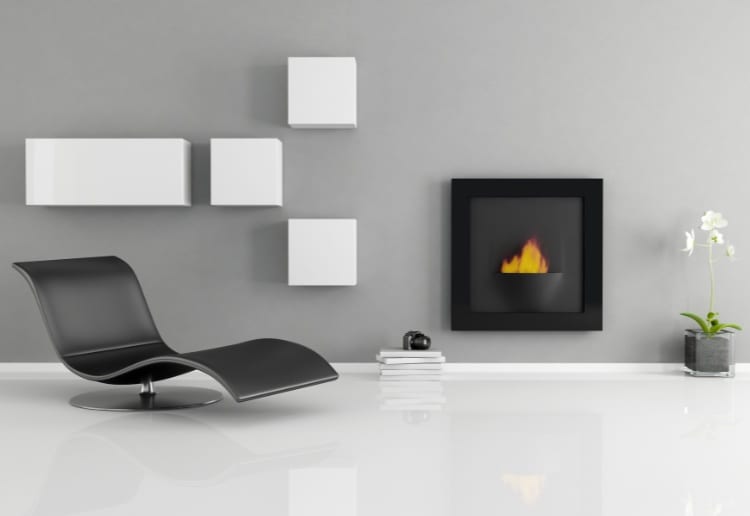Perhaps the Beatles knew what they were talking about when they sang that money can’t buy you love. Maybe it’s time to do a massive purge, get rid of the clutter in your life and start living a minimalist lifestyle.
Every day, society shouts that you need to buy new items or live a certain lifestyle to be happy. But does the bigger house, fancier car or trendier clothes fill you with a sense of contentment or love? Most of these objects come with a hefty price tag that drains your savings and adds stress to your life.
It’s clear that consumerism has created a cycle of buying, which leads to excessive clutter – but how can you make changes to streamline your life? Keep reading to find out!
What Is a Minimalist Lifestyle?
A minimalist lifestyle means that you simplify your life to focus on the things you value most. Minimalists typically own fewer products and concentrate on practicing intentional shopping. By owning less, minimalists have the freedom to seek enjoyment out of other parts of their life. They focus on being self-sufficient with the products they have rather than overindulging.
How Can You Become a Minimalist?
It’s important to recognise that minimalism is a way of life and takes time to adopt. Use these five tips to start making the transition to a minimalist lifestyle.
1. Think About What Matters the Most
It’s time to decide what you want most out of life. Before you can begin the process of simplifying your life, you must identify your values. Are you looking to spend more time with your family? Would you like to discover your passions? Adopting a minimalist approach can help you to reach your goals.
Use your priorities to frame your mindset. Train your mind to think that you’re saying yes to spending time with family, saving money and self-care. If you focus on this, you’ll spend less time worrying about shopping.
2. Act With Purpose
Minimalism is all about intentional choices. You are intentionally making changes to create the lifestyle you want for your family. When you go shopping, you should enter with a plan and purpose, rather than choosing items spontaneously. Look for healthy forms of self-care like meditation rather than relying on retail therapy.
You’ll act as a role model for your children and teach them that they do not need material things to be happy in life.
3. Declutter and Downsize
Now that you’ve decided to adopt a minimalist lifestyle, it’s time to declutter and downsize. Begin this process by forming separate piles such as keep, donate and trash. If you plan to move to a new home, consider how much space you will have available. Many donation centers would be happy to accept your family’s gently used clothes or household goods. Any items that are in poor condition should be discarded rather than donated.
As a parent, you’ve surely realised that your children have favourite toys and clothes that they cherish above all else. Keep those items, and donate things that aren’t valued or used often. Look for duplicates around your home or areas that could be simplified. For example, do you need a library of books if you can access them all digitally on your phone? Reduce what’s unnecessary in your home and appreciate the freedom it brings.
Minimalism helps you to find a deeper appreciation for the things you own.
4. Value Your Time and Health
Spending doesn’t lead to love or joy. Maybe you’ve thought that if you had the nicest house on the block or bought a new accessory, that you would be happy. Yet, once you had those items, you wanted something more. To break this cycle, you must focus on creating your own happiness by living in the present.
Practice mindfulness and gratitude by concentrating on the good that already exists in your life. Find peace from daily activities and choose actions that add value. Organising helps to free up time and energy, allowing you to make healthier choices and improve relationships.
5. Celebrate Your Accomplishments
Whether you’ve decluttered the entire house or driven past your favorite department store without stopping, celebrate your minimalist accomplishments. Choose an experience with your family rather than buying a new object. This type of celebration will create memories and joy in your life. Continue to set goals and reflect on your achievements.
What Are the Benefits of Minimalism?
A minimalist lifestyle can save you time, money and energy. You’ll be able to spend less time cleaning because there will be fewer objects cluttering your home. You’ll have more money to use for experiences, charities and savings. By spending less on physical goods, you’ll have confidence that you have money set aside if emergencies arise.
This lifestyle will improve your intentionality, and you’ll find yourself able to focus more on your passions and values.
Take It One Step at a Time
Minimalism, like many things, takes time and practice to turn into a sustainable lifestyle. Stay positive as you transition to this new way of thinking and living. Clutter can cause stress, anxiety and depression, so even small changes will benefit your life. Use these five tips to find a balance that works for you and your family.
Take it one step at a time and start enjoying the benefits of a minimalist lifestyle today!




















-

-
-
tinamaree said
- 20 Jan 2025
-

-
-
mom62624 said
- 31 Dec 2020
-

-
-
mom101628 said
- 27 Dec 2020
-

-
-
mom19782016 said
- 27 Oct 2020
-

-
-
xbexskyex said
- 25 Oct 2020
-

-
-
tessie said
- 24 Oct 2020
-

-
-
mom93821 said
- 24 Oct 2020
-

-
-
mom19782016 said
- 22 Oct 2020
-

-
-
mom283460 said
- 22 Oct 2020
-

-
-
rovermum said
- 22 Oct 2020
-

-
-
Ellen said
- 22 Oct 2020

-

-
-
mom468317 said
- 21 Oct 2020
-

-
-
mom460689 said
- 21 Oct 2020
-

-
-
mom322089 said
- 21 Oct 2020
-

-
-
mom265671 said
- 20 Oct 2020
-

-
-
BellaB said
- 20 Oct 2020
Post a comment10:49 pm
9:55 pm
11:38 pm
2:36 pm
12:09 am
12:07 pm
-

-
-
mom93821 replied
- 25 Oct 2020 , 6:59 am
Reply6:36 am
1:43 pm
12:35 pm
8:58 am
8:41 am
9:53 pm
8:43 pm
12:13 pm
8:52 pm
7:08 pm
To post a review/comment please join us or login so we can allocate your points.